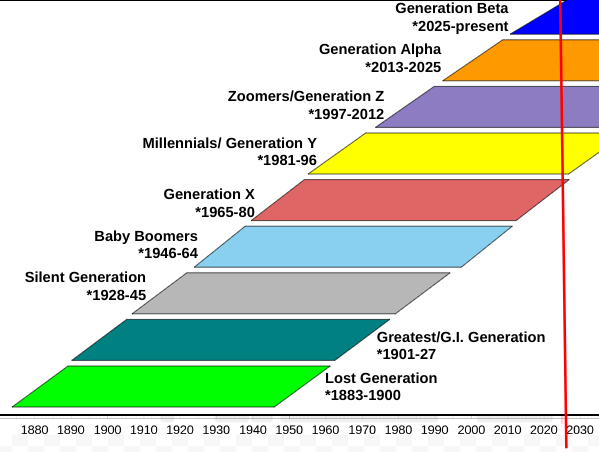
2010 to 2024, 2012 to 2025 and 2013 to now. These are all ranges of years that supposedly represent Generation Alpha (Gen Alpha), the most recent generation and the first generation to be born entirely in the 21st century.
Contrary to popular belief, generations are not clearly defined. Looking at broader generations is useful for market research, journalism and population data, but it can be difficult to determine where individual years fall, especially as newer generations emerge. For example, during the shift from millennials to Generation Z (Gen Z), it was unclear where the millennial generation would end. Now, Gen Z is almost universally defined as starting in 1997, but in the early years of Gen Alpha, its starting year is still uncertain. Since the majority of current high school freshmen were born in 2009 and 2010, not all estimates of Gen Alpha and Gen Z include them. Despite this, freshmen often face accusations that they are Gen Alpha.
Some proponents of starting Gen Alpha in 2010 say that this makes sense because of the fast progress of technology. In 2010, the iPad and Instagram were launched, and the word of the year was “app.” Gen Alpha has been using digital technology from a young age, prompting many to call them “screenagers.” Technological progress can separate generations because media consumption and world outlook can become drastically different based on the use of technology or the Internet. While those born in 2010 did experience substantially higher screen usage during childhood than those born in the early 2000s, there is no clear cutoff year for when frequent use of screens became an essential part of childhood. The year could just as easily be 2012 as 2010.
The year 2010 is a border between generations, giving it greater flexibility than years such as 2006 (Gen Z) or 2015 (Gen Alpha). As generational lines solidify in the future, the 2010-2012 dilemma will likely be solved like the 1995-1997 issue was solved before. Until then, freshmen and anyone else born in 2010 should be able to choose between Gen Z and Gen Alpha.
The majority of freshmen will likely choose to be Gen Z, since the rest of the current Jefferson students are Gen Z. In future years, people born in 2010 might call themselves Gen Alpha as a clearer boundary is established. Small differences like this do not matter because the purpose of generations—population data, historical analysis and technological development—is not affected by whether those born in one year are part of one generation or another.
Ultimately, being considered Gen Z or Gen Alpha may not seem important, but it means a lot to some students to be part of the same generation as their peers. As such, students born in a border year should be able to make the decision themselves.

